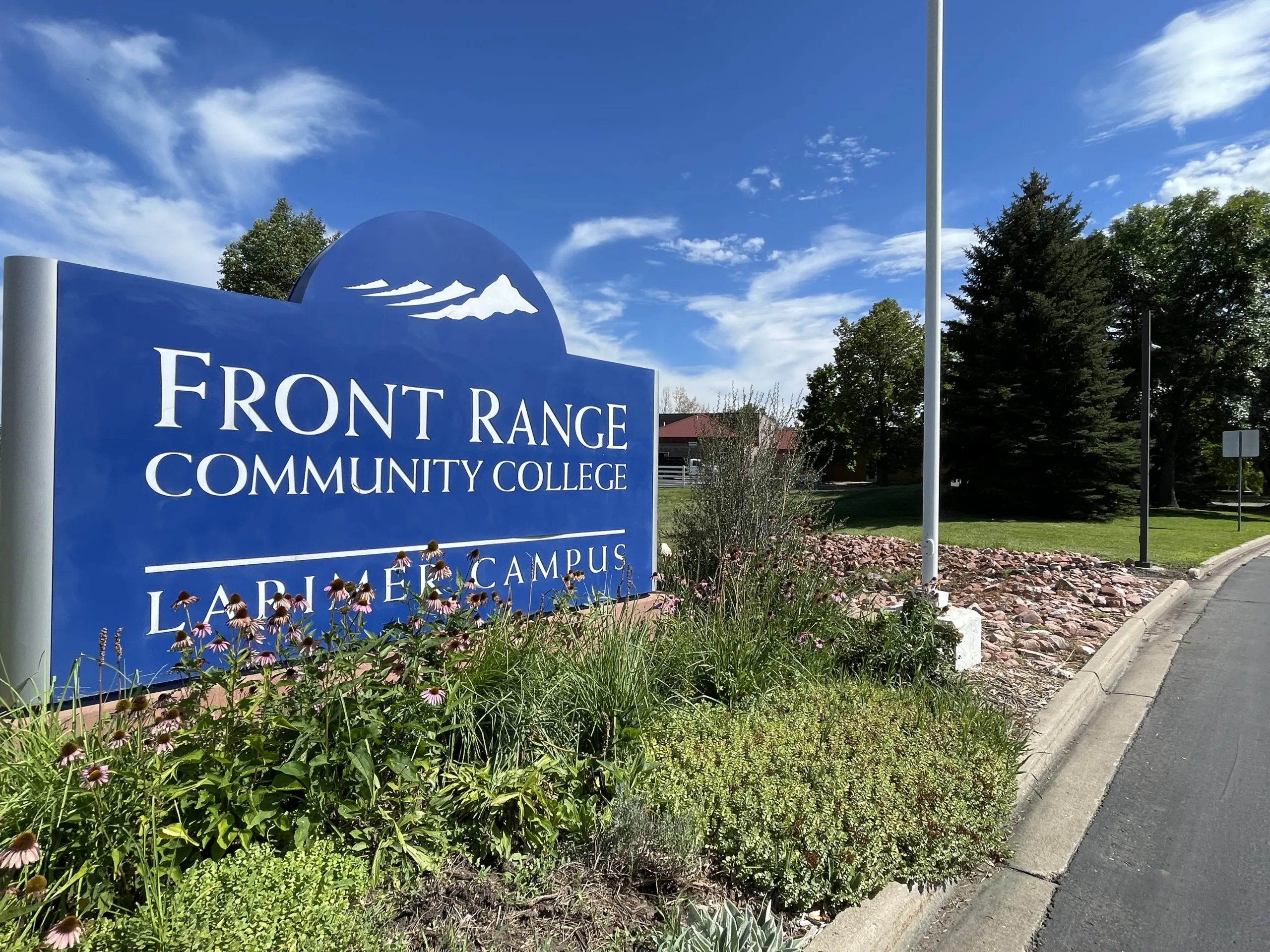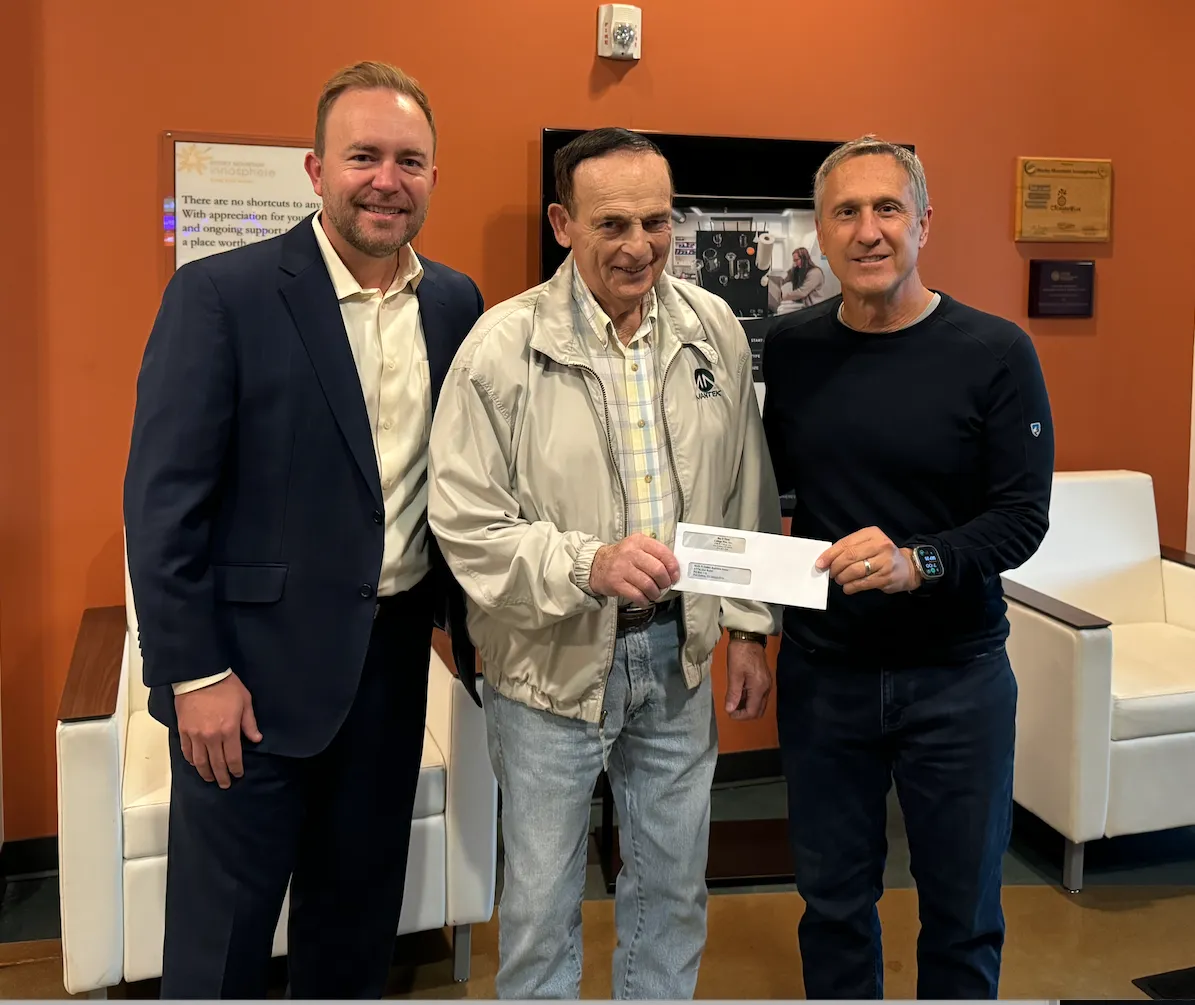Innovation shaken and stirred, unperturbed by pandemic, Roundtable says
FORT COLLINS — Participants in an Innovation Roundtable in Fort Collins Tuesday said pandemic-driven adaptations both stymied growth and shoved it forward over the last 18 months — making “disruption” more than a mere buzzword and forcing “innovation” to earn its spurs in its lauding of entrepreneurial moxie and start-ups launching.
Scott Sampl, COO of Fort Collins non-profit incubator Innosphere Ventures, said before COVID-based changes, when the group got requests to “support non-Colorado start-ups,” he had to say no.
Now, it’s working with clients and colleges from Colorado border states — Wyoming, Nebraska, Kansas, Oklahoma, New Mexico — and beyond, including Texas.
SPONSORED CONTENT
Aerosol Devices chief executive Pat Keady cited challenges: workers losing direct communication — water-cooler conversations — and “one of the biggest detriments [was] no trade shows,” a go-to choice for her Fort Collins firm that makes equipment to collect and help analyze nanoparticles in the air.
“Nano” measures one-billionth; as you read this line your fingernails grew a few nanometers apiece.
“Virtual exhibitions,” she emphasized, “Do. Not. Work. I will not pay another dime” for one.
Sriram Kesavan and Srinivasan Yagnanarayanan co-founded India-based Square Comp, which makes virtual reality products for technical training of blue-collar manufacturing workers. VR companies had also generally been a trade show user for customers who want to give the technology a test drive.
But the duo said they “adapted the technology” to this new non-normal and, “post-COVID made new connections with companies,” Kesavan said.
Yagnanarayanan added that previously they “had to explain VR” to prospective clients. With everyone working virtually, “now it was better.” Square Comp had received inquiries from, for instance, Canada for video training, which in general has increased among companies as an employee education option.
Video training also became a feature-not-bug for SurgiReal. CEO Andrew Hendrickson spoke of how the Loveland company, which makes products to help medical students learn to suture, enhanced elements post-COVID with training videos and “walked educators through” using them.
Zoom Zoom
Specific questions Roundtable innovators batted about involved Zoom meetings, and the now-burgeoning hybrid gatherings, where some members are present and others are on camera.
The Northern Colorado event and one occurring next week in the Boulder Valley are examples of the latter, with about two-thirds of this week’s participants physically present.
Northern Colorado innovators suggested hybrid meets will continue, given expanded circles of work — the Colorado border states and Canada, for example — and a myriad of mask/mask-optional/no-mask rules these days.
People actually like it, they said.
Some love it.
“You can stack them,” said Blake Craig, co-founder of LaborJack, also in Fort Collins. Meetings go “the full hour and you can do the next one right away.”
This means, quite simply, companies “knock on more doors.”
Sampl agreed: One could “hop on Zoom five minutes before” with at least one’s upper-half professionally presentable to a camera and get some business done.
Craig’s company is amping up the temp agency template for the new freelancing, which the kids like to call a “gig economy.” LaborJack signs up workers who don’t want their grand-dad’s Oldsmobile or his 50-hour workweek and supplies them to companies for largely short-term assignments.
Keady said, “remote was a plus because we’re global” and product training and collaboration with clients eased as work embraced electronic communication dynamics.
Company products were used in research connected to COVID that became part of a “nice write-up” in the New York Times, picked up by “100 media outlets globally.”
Hendrickson said by email that SurgiReal’s videos filled a gap. The company got input from instructors, shot them, and posted the training technology to its website and YouTube channel so students “could still access training from home.
“Schools reacted pretty quickly to get online classes going, but our videos are still available.”
(Unintended) Consequences
Several participants commented on such second-level effects.
Many issues involved employees — not just where they’d be, but if they would.
LaunchNo.Co’s Jana Sanchez said she’s seen more women starting ventures as an after-effect of direct COVID-related results — specifically those related to remote work, child or family care, and a shift in professional expectations.
“They want to own their time” rather than, for instance, make a six-figure salary. “Better benefits, too,” in health care and other areas. They’re starting mainly service companies, she said, and “Women who left the workforce aren’t necessarily going back.”
Sanchez executive directs the start-ups group, which helps companies “form, grow, and stay” in Larimer and Weld counties.
Tamara Wesley, a site manager for Intel here, said she’s been working on how to grow a workforce in a highly specialized sub-niche of software and large server chip development.
Larger firms, for instance, can now entice Northern Coloradans away from local jobs — without having to actually entice them away from their homes.
Companies in other areas have “money over money and can pay 3X salary,” Wesley said, and employees — now — “don’t have to move” to take the new job. Her Fort Collins site is expanding but “can’t fill open positions.”
Even if such slots pay less in Texas than in California, for instance, “it’s still higher than Fort Collins.”
Jennifer Henderson agreed. “Early-stage companies can’t compete,” at least not on money. Our Tilt, which has developed a platform to manage employee leave and where she is CEO, offers its own workers “a manifesto not a handbook” and a steady focus on “corporate culture, values, and benefits” — elements of work-life not found on pay stubs.
Henderson’s second-level experience flows from that focus on internal culture and realizing “remote-only isn’t possible” — or even desirable. After an in-person staff retreat the company, “parted ways with two employees” because they’d gotten to know them better, directly.
Craig said though LaborJack’s bread-and-butter is the short-term gig, even that is changing at one register higher than the stock phrase because of COVID.
As COVID’s aftermath — including government activity and people’s altered notions — affects work, he is seeing clients beginning to call for longer-term contracts, to fill employment gaps.
Craig then asked Sampl if Innosphere’s invasions of nearby states would lead to physical locations in the conquered territories. Sampl was circumspect but noted the early-stage company commercialization compadre he helps run was growing its core Colorado work.
Innosphere is “expanding in Fort Collins” soon and “close to a deal” for space in Denver, he said.
As Usual
That’s business-as-usual — in a good way — and with innovation, same-old, same-old is ever-new much of the time.
Mike Moses said we “need to digitally transform” business. Given global electronic expectations — the smart phone lets us find friends in the forest or the Far East — traditional methods can resemble calling 1995’s pager to tell them about a fax we sent.
But “rural internet providers and fiber groups” must move to close “the divide between Front Range and Western Slope” people and companies.
Wesley said “Internet service in rural areas has been a challenge for employees” and noted a need for a “more predictable infrastructure. We design [chips] at home but need to log-in” to do the overall work.
Moses said innovation “had been hampered” during the past 18 months in a restrictive environment with time spent instead on “adapting to a far-flung workforce, adapting to new business models.” A “distributed workforce will be a challenge,” he said.
Moses’s Red Mountain Scientific develops software and uses drones for “field-data capture and cloud-based analytics” for cell tower owners.
Henderson said, “We’ve always been remote first,” which echoed Keady’s comment that the mode was a plus for her global work. Our Tilt grew 10-fold this year and expects to hit the same mark next year; 60% of employees are women.
A collective, nearly tactile audible gasp rippled the room when the words “Microsoft Teams” were uttered, and Sanchez observed the “visceral reaction.” Wesley said “high-quality” Zoom has to be part of new-old best practices.
She also said simply, “I miss people.”
Square Comp co-founders Kesavan and Yagnanarayanan said they thought their people could return to offices as soon as September and October.
The let’s-get-coffee workstyle might be coming back.
Backers
What will always be “back” — ever in-style — is innovation … and charting it.
Dennis Paul, vice president of government affairs with Roundtable sponsor Elevations Credit Union, referred to the “innovation economy” and Fort Collins regional manager, Alex Dutton, connected the concept to the long-time idea of being in the “relationship business” — hence, that morning, a group gathered however hybridly to discuss new ideas.
Mike Grell with accounting firm Plante Moran, backing Roundtables “for as long as it’s been in” Northern Colorado and the Boulder Valley said that conversation was critical to business growth. Ashley Cawthorn added she’s “enjoying it way more, seeing people.” She directs marketing for corporate law firm Berg Hill Greenleaf Ruscitti LLP, with its headquarters in Boulder.
An Innovation Roundtable is planned for Boulder in the coming weeks.
The past 18 months will likely be on its agenda as well — along with the next 18.
© 2021 BizWest Media LLC
FORT COLLINS — Participants in an Innovation Roundtable in Fort Collins Tuesday said pandemic-driven adaptations both stymied growth and shoved it forward over the last 18 months — making “disruption” more than a mere buzzword and forcing “innovation” to earn its spurs in its lauding of entrepreneurial moxie and start-ups launching.
Scott Sampl, COO of Fort Collins non-profit incubator Innosphere Ventures, said before COVID-based changes, when the group got requests to “support non-Colorado start-ups,” he had to say no.
Now, it’s working with clients and colleges from Colorado border states — Wyoming, Nebraska, Kansas, Oklahoma, New Mexico — and beyond, including Texas.
Aerosol…




